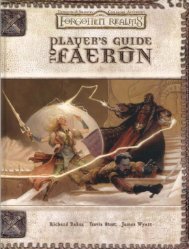CGR2 - The Complete Gladiator's Handbook
CGR2 - The Complete Gladiator's Handbook
CGR2 - The Complete Gladiator's Handbook
You also want an ePaper? Increase the reach of your titles
YUMPU automatically turns print PDFs into web optimized ePapers that Google loves.
Intelligence or less simply try to minimize the danger by<br />
presenting a different side to the attacker. Thus, if two or<br />
more gladiators attack a weakened creature, there is a<br />
good chance they can continue exploiting its weakness<br />
throughout the battle as it shifts the damaged area from<br />
one side to another.<br />
<strong>The</strong> bonus conferred by this proficiency can be communicated<br />
to one’s allies. However, if the creature under<br />
attack understands the language used to effect this communication,<br />
anyone attacking the creature does so with a<br />
-2 penalty.<br />
When used against a gladiator with the Arena Acting<br />
proficiency, the two sides involved must have a proficiency<br />
contest. Each character must make their respective Proficiency<br />
checks. <strong>The</strong> degree of success in this is measured<br />
by the difference between the target number and the<br />
actual die roll. <strong>The</strong> winner is the character with the higher<br />
degree of success. If the winner is using Weakness Identification,<br />
he spots the acting through some small flaw in the<br />
performance. Likewise, if the Arena Actor has the greater<br />
number, the one with Weakness Identification falls for it.<br />
Example: Bythal has an Arena Acting proficiency of<br />
14. His opponent Haarna has a Weakness Identification<br />
proficiency of 13. Bythal's roll is a 7, while Haarna's is a 3.<br />
Since Haarna's difference is greater at 10 (13-3=10)<br />
than Bythal’s 7 (14-7=7), Haarna can easily see that<br />
Bythal is acting. He is not drawn in, and Bythal’s bonus is<br />
negated.<br />
<strong>The</strong> interchange here can be complicated. Some gladiators<br />
take both Arena Acting and Weakness Identification.<br />
Arena Acting should be checked first, so that the<br />
enemy may be fooled from the first instant he spies his<br />
opponent. After the gladiator assumes his weakness, he<br />
can begin checking his enemy for the same thing. Both<br />
these rolls should be rolled where only the DM can see<br />
them, so that the player does not know if he was successful<br />
in his various attempts.<br />
3I<br />
Weapon Proficiencies<br />
<strong>The</strong> gladiator need never worry about having to swing an<br />
unfamiliar weapon in a pinch; for a gladiator, there is no<br />
such thing as an unfamiliar weapon. If nothing designed<br />
specifically as a weapon is available, he can make one<br />
from his surroundings.<br />
Gladiators never suffer a nonproficiency penalty when<br />
picking up a weapon. Even when the gladiator has never<br />
seen a weapon of its like, he can easily fathom its purpose<br />
and the way it is used—just in time to eliminate his foes.<br />
Unlike most others, the gladiator is trained extensively in<br />
the understanding of weapons and awareness of his body’s<br />
capabilities.<br />
Indeed, the gladiator’s ability with weapons is such<br />
that he can specialize in more than one weapon at 1st<br />
level. Gladiators may specialize in as many weapons as<br />
their available weapon proficiencies allow. Whenever<br />
the gladiator gains enough proficiencies to qualify for<br />
another weapon specialization, he may take it. When<br />
trying to gain new weapon specialization, the gladiator<br />
must pay the full cost for his weapon specialization; that<br />
is, he must pay both the initial slot for proficiency in<br />
that weapon, as well as the additional slots required to<br />
specialize.





